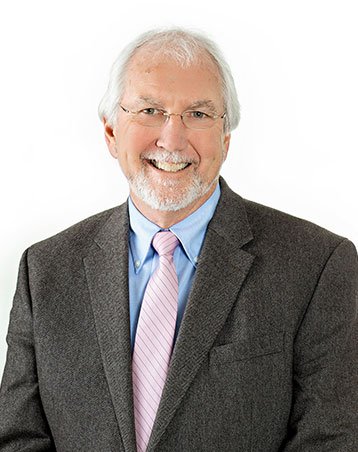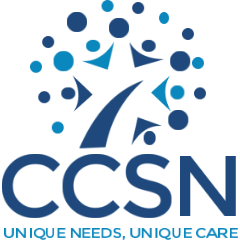History of CCSN
We are your family’s trusted partner for support, advancement, and advocacy
History of CCSN: The Center for Children with Special Needs
The evolution of CCSN began at Newington Children’s Hospital in 1990 where Dr. Michael Powers was the Co-Director of the Developmental Disability Service. When Newington Children’s Hospital was transitioning to become Connecticut Children’s Medical Center, Dr. Powers left the hospital and formally established The Center for Children with Special Needs (CCSN) in 1994.
Over the years CCSN has grown and currently specializes in the diagnosis, evaluation, and treatment of children, adolescents, and adults with Autism, Asperger Syndrome, and related complex Neurodevelopmental Disorders, including those who experience:
- Challenges in self-regulation (including difficulties with feeding, sleep, daytime and nighttime incontinence, pica, severe aggression and self-injury)
- Co-occurring mental health disorders (including anxiety, depression, and other psychiatric conditions)
- Co-occurring Intellectual and Learning Disabilities

MICHAEL D. POWERS, PSY. D.
Executive Director of CCSN
As the largest private outpatient assessment and treatment facility specifically for Autism and related Neurodevelopmental Disorders in Connecticut, CCSN maintains an interdisciplinary clinical staff comprised of psychologists, behavior analysts, and speech and occupational therapists, providing evaluation and treatment services across the lifespan for families and individuals.
Beyond direct clinical care, CCSN has been deeply involved in helping educational programs at the local, state and regional level meet the diverse learning needs of students with ASD and other complex challenges. Through an active program of consultative and training services, CCSN provides program evaluation, development, training, and consultative support to educational, governmental, and private organizations supporting those families and their children.
Through the years as the team at CCSN grew, the practice moved into progressively larger facilities in Mansfield and Tolland before settling into Glastonbury in 2003. In 2012 CCSN again expanded into a second location in Glastonbury and now occupies over 15,000 sq ft with spaces dedicated to clinical treatment and consultation, as well as telehealth.
In 2013, CCSN established The Center for Independence to provide a more specialized entity for evaluation and treatment of later adolescents and adults as well as consultation and therapy for specific problems such as feeding, sleep, and elimination disorders.
As CCSN has grown, its clinical and consultative impact has expanded throughout the region and abroad. To support this growth, in 2016 CCSN reorganized its clinical services into four clearly-defined Divisions: Clinical Services, Consultative Services, Adult Services, and International Services. Within each of these Divisions, program development is ongoing as the need for specialized solutions for families, individuals, and organizations arises.
This divisional breakout is designed to address the whole spectrum of clinical and educational needs that an individual with ASD may require from initial diagnosis and treatment to programmatic and educational support to transition planning, vocational support, and resources to facilitate independent living.
Recognizing that ASD is a global issue, CCSN formally established an International Division with the explicit mission to develop scalable services and resources to support individuals with ASD, their families, and their communities around the world. The International Division draws upon the clinical, telehealth, and global public health expertise of the entire faculty at CCSN to provide services to individual children and their families, hospitals, public agencies, and non-governmental organizations (NGOs) throughout the world. Recent projects have been developed in the UK, Norway, Finland, Italy, Kazakhstan, Peru, Sri Lanka, Switzerland, and the Turks and Caicos Islands.
In an effort to expand access to treatment services for families in our local community, in early 2017 CCSN also established CCSN Behavioral Health, LLC as a dedicated entity to provide outpatient therapy and center-based ABA services to children and families. CCSN Behavioral Health has contracted with commercial insurance companies as an in-network provider for these services in order to increase access to care and ease the financial burden on families seeking these treatment services.
The Yale Child Study Center has a long and prominent history of service to children and youth with a wide variety of neurodevelopmental challenges, and particularly with those with Autism Spectrum Disorders. Psychologists at CCSN have been a part of the Clinical and Community Faculty at the Child Study Center for over 20 years so it made sense, then, to seek a more formal partnership. In early 2017 Dr. Linda Mayes, the Director of the Child Study Center and Dr. Michael Powers at CCSN agreed to work collaboratively and established a formal affiliation between our two respective Centers in order to enhance access to the highest quality clinical care available for the families and children that we serve.
With our mission to provide expanded access to the best science and evidence-based treatment of individuals with Autism Spectrum and related Neurodevelopmental Disorders, CCSN seeks to provide families, health care professionals, educators, and policy makers with solutions to enrich the lives of those with complex needs. Since its inception, CCSN’s core values have been that in diversity there is strength, and that with the best science guiding clinical practice, all individuals with ASD and their families will thrive.
At CCSN our growth has been driven by dual passions: Families committed to seeking the best possible outcomes for their children, and a dedicated multidisciplinary team of professionals committed to using the best science available to help each one of those families. Together, we strive to bring out the best, honor the diversity, and empower those with ASD to achieve, contribute, and become their best selves.

You must be logged in to post a comment.